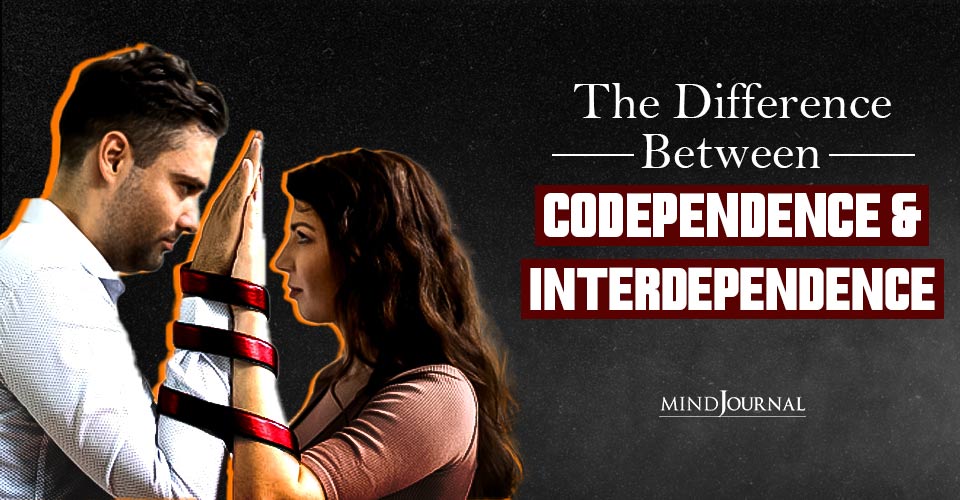How you feel about your marriage depends on how you and your partner relate to each other—your interpersonal relationship. The interpersonal relationship between romantic partners is about how you ask for what you want, how you resolve differences, how you avoid conflict, how you express your feelings toward one another, and how you talk about a concern or complaint.
Every interaction between partners has two features: a content feature and a process feature. Content refers to the specific issue at hand—you want sex, help with the dishes, a night out with the guys, etc. Process refers to what is happening between you interpersonally as you talk about what you want—how you are relating to each other. This distinction is important because it is how you relate to one another more than the specifics of what you want that determines how you feel about your relationship—and how you feel about your partner.

How to Evaluate Your Marital Relationship
There are three general ways couples relate to one another: Doing Gender, Transacting, and Collaborative Negotiating. It is likely that you interact in all these ways at one time or another. However, one kind tends to dominate in relationships. How you feel about your relationship will be influenced by the usual way you relate to one another.
Here is a guide to assessing how you relate to your marriage and how you feel about how you are interacting.
1. Doing Gender
“His” and “Her” Roles
Relating to one another in traditional marriage relationships is acting out your ingrained views of masculinity and femininity. You may be “doing gender” in your marriage without even knowing it. In a heterosexual marriage, the traditional pattern is each husband and wife conform to the socially prescribed roles of the masculine-husband and feminine-wife.
In this type of relationship, what men and women want and how they go about getting it is dictated by gender. To not conform to these gender expectations and roles is to be “less masculine” and “less feminine.”
Also read 5 Reasons Why Dating A Married Man Will Only Lead To Heartbreak
Doing Gender—An Example
Imagine a husband who has had a hard day at work and is feeling stressed. He “acts out” his gender expectations by crumpling into his easy chair to show that he is worn out from work and needs attention. His wife, seeing this, intuitively understands that this is his bid for her to show her “womanly” caring.
How she responds depends on her definition of being feminine and his sense of masculinity. She may respond by sitting down with him for a few minutes, or by bringing him something to eat or drink. He may not want to talk about his day. To not provide caring would likely result in him feeling deprived of what is his due. It is noteworthy that conforming to these gender roles is not necessarily seen as praiseworthy—it is what ought to be done. [1]

Assessing Your Relationship
Conforming to prescribed roles in a marriage limits individual creativity. It also can foster unfairness in marriage because of the power differential inherent in gender. A few questions can begin your assessment of relating by gender and how satisfying is it:
- Do you feel stuck in being a “good wife”?—being nice, feel guilty when family members are not doing well, sacrificing things you want to do, feeling hemmed in by routing household duties, etc.
- Do you feel stuck in being a “good husband”?—feeling overwhelmed by the need to provide for your family, not being appreciated for the contributions you make, sacrificing things you want to do, etc.
- Are you caught in the “demand-withdraw” pattern of interaction? As a wife, you push for change and your husband disengages.
Also, read 8 Secrets of Long-Married Couples
2. Transacting—The Business Model
Young people searching for newer ways to interact with each other turned to professionals (e.g., psychologists, social workers, marital advisors) to find a new way to relate that is less driven by gender. These authorities propose the idea of a transaction, which comes from the business world. Applied to marriage means the partners do things for each other with the expectation of reciprocation.
The Marital Contract
As couples try to avoid a relationship defined by gender, they have been advised to formalize how they relate to each other with a contract. Such contracts outline how and when to do nice things for each other and how to share the household and parenting tasks fairly. These contracts can spell out everything—sex, chores, finances, etc., assigning who is responsible for what. The idea behind such contracts is the idea of reciprocity. If I fulfill my part of the contract, you will fulfill yours. You can find hundreds of ways in which to create these kinds of contracts online.
“His” and “Her” Needs
Transactional relating is also based on the notion that what we want from each other is expressed as “I need.” Marriage is the way we get our own, individual needs met. The basic idea is “You satisfy my needs, I satisfy yours.” This approach weds the transactional/reciprocal nature of the relationship with the idea that human beings are motivated mostly, if not entirely, by their own self-interest.
Also read Why Married Couples Are Not Good At Sexual Communication
Assessing Your Relationship
Researchers and clinicians working with couples have found that marriages oriented around reciprocity are less successful.[2] Deal making, contracting, and quid pro quo arrangements inevitably cause couples to “keep score” on how much each does compare to his/her spouse. Do you find yourself feeling “entitled” to certain responses from your spouse? For example:
- I work longer hours than you do, so you should _______________.
- I said ‘I love you’ several times, and you haven’t said it even once.
- I go along with what you want most of the time, now I want you to do ______________.
“Fulfilling each other’s needs” is such a popular idea that it has become marital dogma. However, transactions defined in terms of “needs” have toxic effects on a relationship:
- Needs become demands that we feel entitled to have fulfilled.
- Needs require reciprocal arrangements (“I’ll have sex with you if you will spend more time talking to me.”).
- Not having needs fulfilled is justification for infidelity and divorce.
- Here is no end to things you can identify as your needs.
Also, read The Danger of Sliding Instead of Deciding to Get Married
3. Interacting Collaboratively
Negotiating Collaboratively
In my work with couples, I promote negotiating the things that are important for each partner to flourish in life—fundamental wishes and wants (in contrast to “needs”)—in a collaborative manner.[3] This approach requires partners in a relationship to maintain a simultaneous perspective of themselves both as individuals and as a couple; they must have a sense of “being in this together” while also having individual life plans.
Wants and desires that flow from individual life plans are not “entitlements” that must be fulfilled. Wants or preferences are things that you value but are willing to negotiate, in good faith, with your spouse or cohabiting partner.
Collaborative negotiation is not the kind of “tit for tat” negotiation one sees in business in which each partner gives to the other with the expectation of a return—it is not a transaction.

Collaboratively negotiating means each partner values the other in the same way they value self; neither partner seeks to “privilege” their wants and desires over the other’s (e.g. because of gender or a superior wage); each partner is aware of the impact of their actions on the other; and the couple develops a strategy for negotiating wants and desires that honors each partner by creating win-win approaches to individual wants, issues, concerns, and complaints.
Being collaborative in collaborative negotiation means knowing that:
- Collaborators are equal—collaboration requires sharing authority, accepting responsibility and negotiating in good faith.
- Collaboration is not capitulation—true collaboration protects individual autonomy.
- Collaboration is not cooperation—collaboration is about the process of working together; cooperation is about the result of working together. (I can cooperate with you by stepping aside while you do what you want.)
- Compromise can also be stepping aside while your partner does what he/she wants.
Marc and Amy—An Example
Marc and Amy are committed to the idea of equally shared parenting.[4] They don’t divide up childcare and household tasks or divvy up specific responsibilities; nor do they keep track of who has done what. They each take responsibility for all aspects of parenting their two children on separate days. The couple divides their responsibilities (e.g. getting the children up, feeding them, getting them to daycare or school, etc.) based on who is working what hours on a given day. Amy and Marc continually stay alert and monitor how things are being shared between them.
Sometimes the tasks do fall along traditional gender lines. The point, for Marc and Amy, is not to default to these gender-driven roles but rather to think things through and talk about it.
Also, read 10 LEGIT Reasons You Should Get Married In Your 30s, Not Your 20s
Assessing Your Relationship
This kind of attention to maintaining a collaborative relationship in which you negotiate issues in good faith takes a lot of work, much of it is being self-reflective…knowing where you are emotionally and psychologically in order to stay committed to this kind of relating. And, you must develop and practice ways to negotiate win-win solutions. Some examples of what you may feel as you become willing to become collaborative negotiators are
- This is too much work!
- I’ve had enough “self-awareness.”
- Do we have to “negotiate” everything?
Focus on How You Are Relating To One Another
A committed marriage is a lifelong partnership that links two people around their most fundamental wishes and wants. A good way to assess how you are doing in your relationship is to look at how you and your partner are interacting with one another. Do your interactions support you both as individuals while at the same time enhancing your relationship?
Couples need to interact with one another intentionally and attentively. Some things simply cannot be mandated, not even by contract nor by gender. You can intentionally and attentively negotiate collaboratively with one another.
References: 1. Thompson, Linda. “Conceptualizing Gender in Marriage: The Case of Marital Care.” Journal of Marriage and Family 55, no. 3 (August 1993). 2. Gottman, John. Why Conventional Marriage Wisdom Is Wrong. (July 11, 2018). https://www.gottman.com/blog/why-conventional-marriage-wisdom-is-wrong/. 3. Aponte, Catherine E. (2019) A Marriage of Equals: How to Achieve Balance in a Committed Relationship. Berkeley, CA: She Writes Press. 4. Lisa Belkin, “When Mom and Dad Share It All,” The New York Times Magazine, (June 15, 2008), http://www.nytimes.com/ 2008/06/15/magazine/15parenting-t.html.
Written by: Catherine Aponte, Psy.D Originally appeared on:Psychology Today Republished with permission









Leave a Reply
You must be logged in to post a comment.